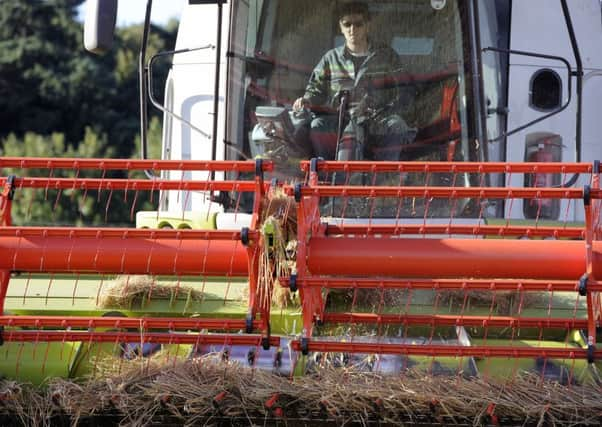30 years of farming machinery rings in Scotland
This article contains affiliate links. We may earn a small commission on items purchased through this article, but that does not affect our editorial judgement.


In one of my rare contributions to the history of farming, the family farming partnership I was in at the time was one of 23 founder members.
The Borders ring now has about 930 members and there are nine machinery rings in Scotland with a combined total of well over 7,000 members. So we were right to see the potential of what was originally an American idea promoted enthusiastically in Scotland by the late Sandy Mackay of the Scottish agricultural college, and in the Borders by farmer and rugby ace Alistair Cranston.
Advertisement
Hide AdAdvertisement
Hide AdThe official definition of a machinery ring is that it “matches a shortage of machinery and/or labour capacity on one farm with a surplus on another”. In a way it formalises the neighbourliness there has always been in farming, farmers helping each other out in time of need, often offering without being asked.
That generosity is one of the more endearing characteristics of the business, but machinery rings put it on a formal, financial base. Prices for most jobs are at fixed rates between the demander – that should really be “asker” – and supplier with the machinery ring taking 2 per cent of the bill from each for acting as agent and matching supply to demand.
It is also a formal form of co-operation, something which farmers, for all their informal neighbourliness, have been notoriously poor at. The independent stubborn streak that can make a good entrepreneur makes them reluctant to cede what they see as any outside control of their business. They would rather have capital tied up in their own big machine than rely on an outsider providing a service.
Machinery rings have helped change that way of thinking as farmers have realised that not having at least one of every type of machine does not make you a bad person. Economies of scale still count, as those farming several thousand acres with their own equipment show, but there are still medium-sized businesses able to make full use of machinery ring expertise.
Rings have also allowed agricultural contractors to make a more secure living, notably in specialised jobs such as spraying, and allowed farmers to invest in one big machine for use on their own farm and to more than cover its cost by contracting work through the ring.
Another development in those 30 years, unforeseen at the time, at least by me as we were founding the Borders ring, has been supply and demand for freelance labour. Changes in farming practice, particularly in crop growing, mean that after the peak demand of late July to early November there is a long relatively quiet spell.
There is not enough work for permanent staff as the steady decline in the full-time farm workforce – and the conversion of so many Borders farm cottages to holiday lets and homes for commuters – testifies. Freelance workers supplied through the ring meet peak demand for tractor and combine drivers and most of these workers can provide other specialist services on demand, such as fencing, throughout the rest of the year.
Advertisement
Hide AdAdvertisement
Hide AdNot only crop growing has times of peak demand. The number of full-time shepherds has fallen steadily in the past 30 years, partly because of the roller-coaster of sheep prices, partly because it’s a tough job that fewer are prepared to do. That means freelance shepherds are in demand.
Another part of ring work that has grown steadily has been bulk buying of supplies such as sprays, fuel and fertilisers. And provision of training courses and skills development for an industry that must keep abreast of continuous change is becoming an increasingly important part of machinery ring work.
It’s worrying, speaking personally, that 30 years seems to have gone so quickly since 23 farming businesses in the Borders agreed that a machinery ring was a good, ground-breaking, idea.
It’s also worrying, again speaking personally, that 30 years is a generation, and that many of the present 900-plus members were at school or toddlers when the ring started. But it’s good to know the idea has worked.
